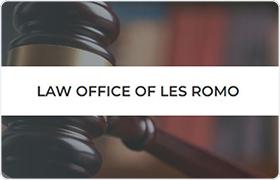Del Valle Real Estate Lawyer, Texas
Sponsored Law Firm
-
 x
x

Click For More Info:
-
Law Office of Les Romo
102 West Morrow Street Suite 202 Georgetown, TX 78627» view mapEstate Law Helping You Understand Your Options
Attorney Les Romo can help protect your interests and resolve your legal issue in the best possible way. Attorney Romo is dedicated to vigorously representing his clients.
800-769-7481
William T. Peckham
✓ VERIFIEDBankruptcy & Debt, Foreclosure, Lawsuit & Dispute, Estate, Credit & Debt
Frank E. Scofield
✓ VERIFIEDEstate, Real Estate
A fourth-generation Texan, Frank E. Scofield was born to ranch work and the outdoors. Prior to completing undergraduate studies at UT Austin, he worke... (more)
FREE CONSULTATION
CONTACTRandall B. Wilburn
Construction, Environmental Law, Housing & Urban Development, Public Utilities
Status: In Good Standing
FREE CONSULTATION
CONTACTDouglas A. Fohn
Housing & Construction Defects, Construction, Litigation, Lawsuit & Dispute
Status: In Good Standing
Joseph F. Brophy
Products Liability, Medical Malpractice, Construction, Corporate
Status: In Good Standing
James Bernard Murphy
Commercial Real Estate, Oil & Gas, Environmental Law Other, Administrative Law
Status: In Good Standing Licensed: 18 Years
 Les Romo Georgetown, TX
Les Romo Georgetown, TX Practice AreasExpertise
Practice AreasExpertise


